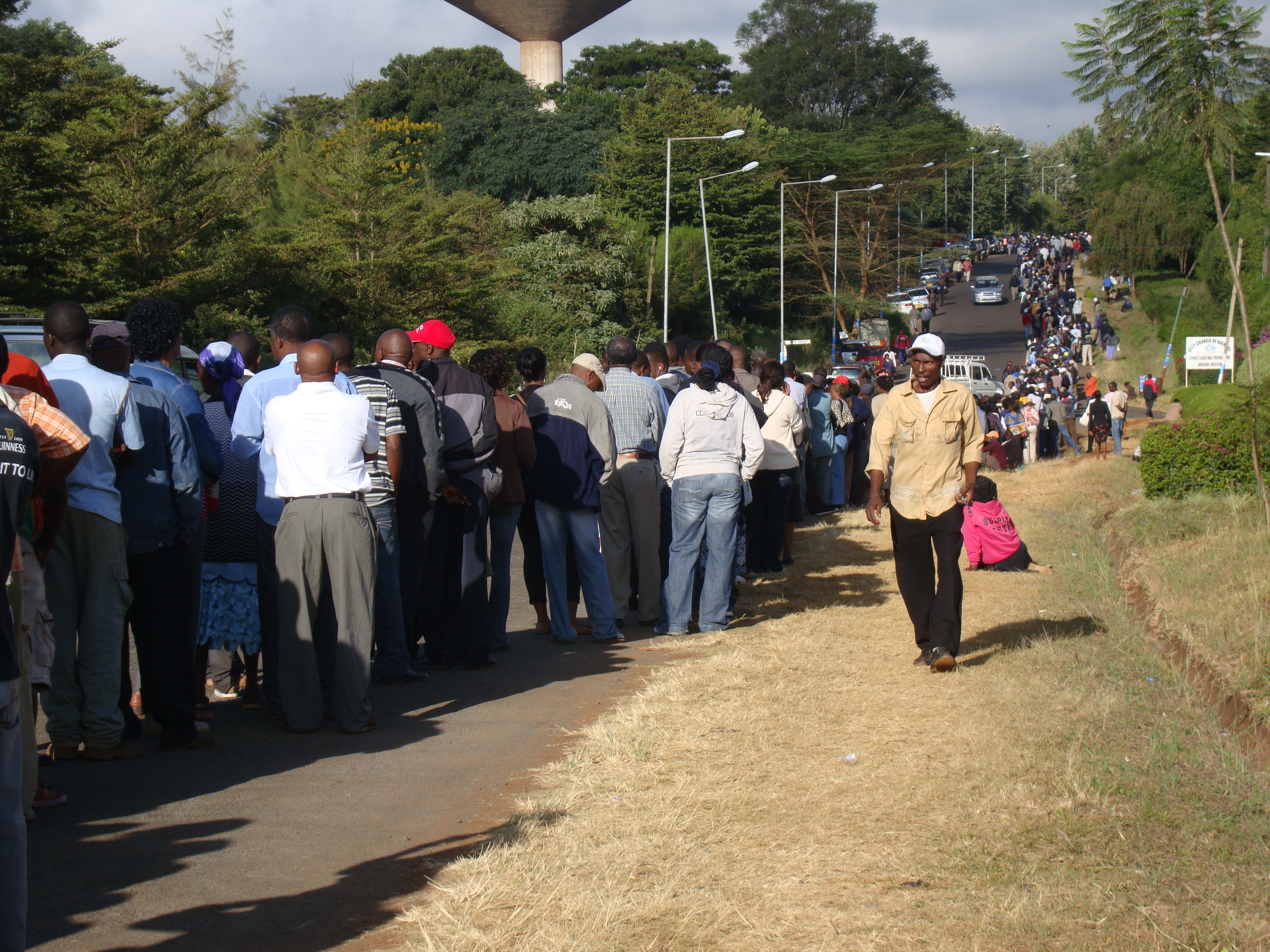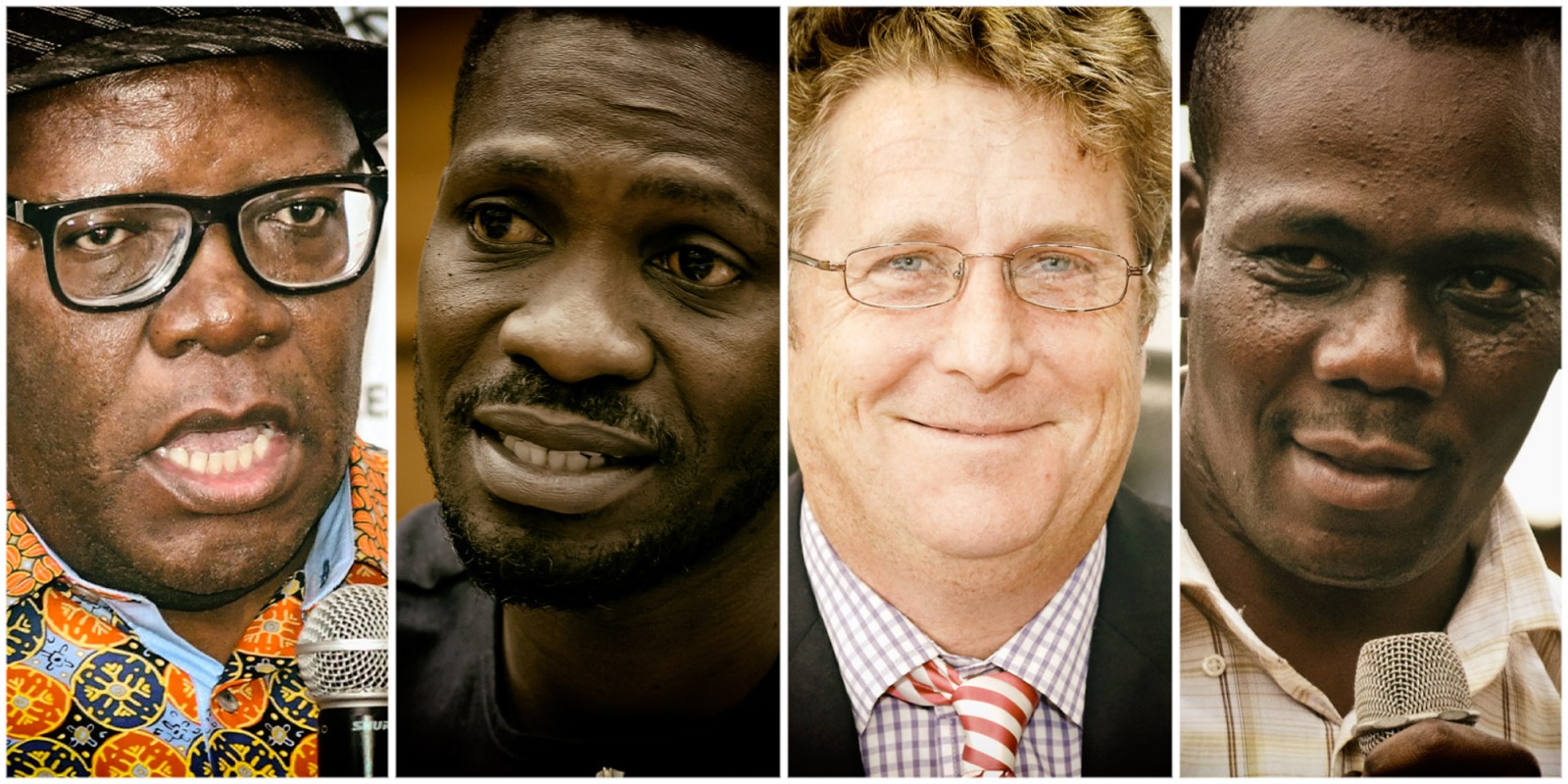News
Kenyan Election: Will Democracy Triumph?
Kenya's upcoming election is a big one with even bigger consequences. The country is plagued by a system of governance, policy, foreign relations and an elite mindset seemingly misaligned to deal with the core problems of poverty, corruption, lack of diversification and mounting debt. The winners in this election will have a long road ahead to mend a country reeling with public debt of more than 65% of GDP and a real risk of debt distress.

Deputy Research Director, The Brenthurst Foundation

Associate Researcher, The Brenthurst Foundation

Driving in Kenya's capital, Nairobi, is not for the faint-hearted. For those unfamiliar with the experience, drivers weave in and out of lanes with an unsettling amount of bravado and recklessness. And, somewhere between admiration of dexterity and sheer panic, you may catch a good conversation. Like we did with Samuel, an Uber driver.
His sentiments towards the upcoming elections were short but telling: “This is Kenya. Elections come and go and always leave us in the same shit. So this one, too, will pass.” Then, with a sly grin, he shifted the conversation to a more fascinating matter: why Boda bodas (motorcycle taxi drivers) are allegedly the biggest homewreckers and marriage breakers.
Like many others in Kenya, Samuel is fatigued by a system that has not delivered to its electorate.
Kenya's economy has been one of the fastest-growing in East Africa and sub-Saharan Africa. Before the Covid-19 pandemic, economic growth averaged 5.7% in 2019, the third-highest in sub-Saharan Africa, boosted by a stable macroeconomic environment, upbeat investor confidence and a robust services sector.
Yet, according to a recent Afrobarometer poll, less than half of Kenyans said their country was headed in the right direction, and some 65% described the country's economic situation as “fairly bad” or “very bad”, a 10-percentage point increase from 2016.
Evidently, there is concern among the 22 million voters planning to show up at the polls across its 47 counties to elect a new president, Senate, woman's representative, members of the National Assembly, governors, and members of the County Assembly next Tuesday, 9 August.
A long road ahead
It's a big election with even bigger consequences. In spite of its impressive economic performance, Kenya is plagued by a system of governance, policy and foreign relations and an elite mindset seemingly misaligned to deal with the core problems of poverty, corruption, lack of diversification and mounting debt. Winners have a long road ahead to mend a country reeling with public debt of more than 65% of GDP and a real risk of debt distress.
Nearly half of the country's 50 million people live below the poverty line. It doesn't help that slowing global demand for Kenya's exports worsened the trade deficit to 5.2% of GDP in 2021. Moreover, as the International Labour Organization estimates, in 2021, total youth unemployment was 13.8% — one percentage point below the sub-Saharan average, but six percentage points more than it was in 2016. With nine million young people expected to enter the labour force by 2025, there is a dire need for an end to business (and politics) as usual and a pivot to a job-creating and growth-inducing economy.
The four contenders for the upcoming presidential elections are the deputy president, William Ruto; the veteran politician Raila Odinga; and two lawyers, David Mwaure Waihiga and George Wajackoyah. Kenya's Independent Electoral and Boundaries Commission says these four candidates, from an initial list of more than 40, have met the constitutional and statutory requirements for the presidential elections.
The election is expected to be the most tightly contested in Kenya's recent history, with political tensions rising after Kenyan President Uhuru Kenyatta shifted his support from Ruto to former prime minister Odinga.
The dangers of violence and human rights breaches remain high even though a lot has changed since the 2007 elections, which led to the deaths of more than 1,100 people and the displacement of more than 600,000. Subsequent elections in 2013 and 2017 were relatively less violent, although still tainted by some human rights violations. Kenyans are thus cognisant of the potential for pre- and post-election violence, despite decades of institutional reforms, a new Constitution and relatively decreased societal tensions. However, Kenya has come a long way, and as a result, there is a general sense of optimism that Kenya's next transition will take place in a free, just and peaceful manner.
What is unique about this year's election?
Many things. One is that this time around, there is no clear incumbent or opposition.
The outgoing president, Kenyatta, has endorsed veteran opposition leader Odinga instead of his deputy president and current presidential aspirant, Ruto — a member of the ruling Jubilee Party. This has blurred the boundaries between a clear opposition and incumbent, making it difficult for an already confused and fed-up electorate to make clear choices.
Albeit not a new occurrence, this unusual political alignment has helped deflate traditional political tensions as the United Democratic Alliance and its broader Kenya Kwanza alliance, and the Orange Democratic Movement and its Azimio La Umoja coalition have diverse tribal backgrounds.
Odinga's Azimio La Umoja-One Kenya Coalition consists of his Orange Democratic Movement and 25 other political parties, while Ruto's Kenya Kwanza and United Democratic Alliance includes 11 political parties.
Besides the party coalitions, the vice-presidential choices of the two leading candidates are both from the largest ethnic group, Kikuyu, making another play for a major constituency and key determinant of the Kenyan election. These are all tactics aimed at minimising the potential or possibility of post-election conflict along ethnic lines.
But like a game of whack-a-mole, new tensions have emerged. Ruto now finds himself in a difficult position, campaigning on a new footing — building his support base, narrative and ideology instead of simply continuing his original party's work on critical policy issues.
The Jubilee Party that supported Kenyatta and his deputy is now split down the middle, with some supporting the endorsement of Odinga and the others, Ruto, in reaction to Kenyatta's apparent “betrayal”.
Second, a key feature of this year's election is a much higher voter uncertainty level than in previous ones, even among young people (only 38% of registered voters are under the age of 35). Voter apathy is much higher than in previous elections, and a much lower voter turnout is expected. Despite many promising narratives such as the “hustler nation versus the dynasties” by Ruto's camp and an ambitious 10-point election manifesto by Odinga, many believe nothing will change, irrespective of who wins the elections. It doesn't help that no practical steps have been outlined to achieve the electoral promises.

Third, widespread concerns about the credibility of the Kenyan elections largely stem from criticism of the Independent Electoral and Boundaries Commission and its electronic voting system of choice — the Kenyan Integrated Election Management System.
The two leading presidential candidates laid grievances against the Independent Electoral and Boundaries Commission (IEBC) and its preparedness to oversee free, fair and credible elections on 9 August. Ruto questioned the expulsion of 800,000 votes in his stronghold regions from the voter register, and Odinga, besides blaming the IEBC for stealing his votes in the three previous elections, raised 10 concerns that the IEBC needs to address comprehensively before the elections.
These include security in the printing of the ballot boxes, testing the election technology before the polls to make sure it works properly, the migration of data from polling centres to the tallying centre, an audit of the registered voters and when the final report is expected.
The IEBC's readiness is further complicated by its association with Smartmatic, an election technology firm based in Panama. Its representatives were arrested at the Jomo Kenyatta International Airport for having election material for a few polling stations.
Although the IEBC chairman has defended the staff of Smartmatic and the materials in their possession, Kenya's Anti-Terrorism Police Unit appears unconvinced, as do some Kenyans. The stain that follows the IEBC and its sitting chairman, Wafula Chebukati, is a Supreme Court ruling that it “failed, neglected or refused to conduct the presidential election in a manner consistent with the dictates of the Constitution”.
However, the IEBC has assured Kenyans of a credible election, and its vice-chairperson, Juliana Cherera, has said Kenyans should expect nothing short of free, fair, peaceful and credible elections from the electoral body.
But Kenya's election is about more than election day. Among the essential problems that Kenyans want their government to address is unemployment, ranked third in 2019 (29%), behind health (36%) and corruption (34%, doubling from 17% in 2011), while management of the economy came in seventh. More significant issues thus lie around who can support the optimism of Kenya's young people (50% of whom are optimistic about economic conditions in the next year) and revive that of its elders, fewer (40%) of whom are confident about economic conditions.
The upcoming Kenyan elections tick the democratic process box. The big questions, however, lie in whether the candidates will rise above politics as usual to reform the country and get it on track to produce jobs, or continue down the path that is fast deteriorating the trust and confidence of its electorate and risks spiralling into economic disaster.
This article originally appeared on the Daily Maverick

